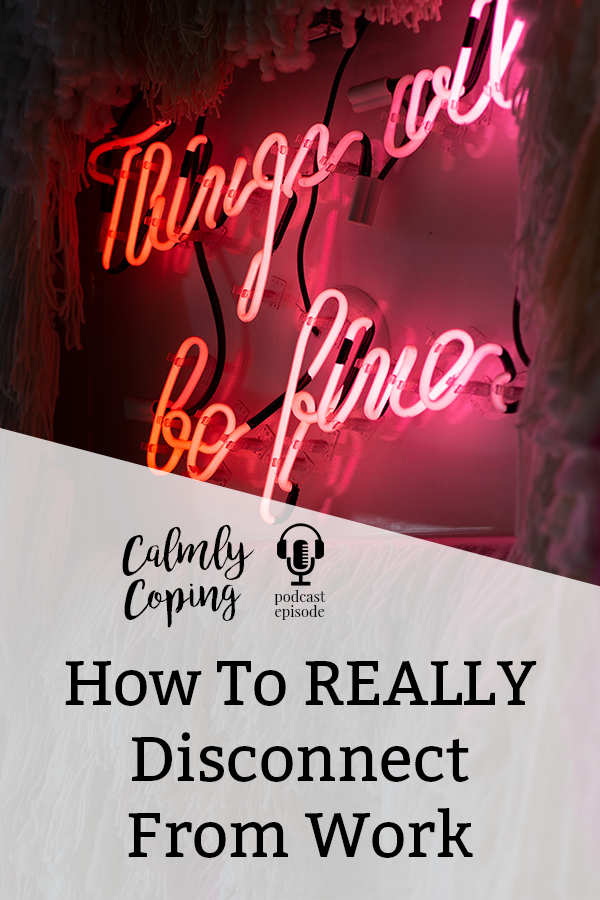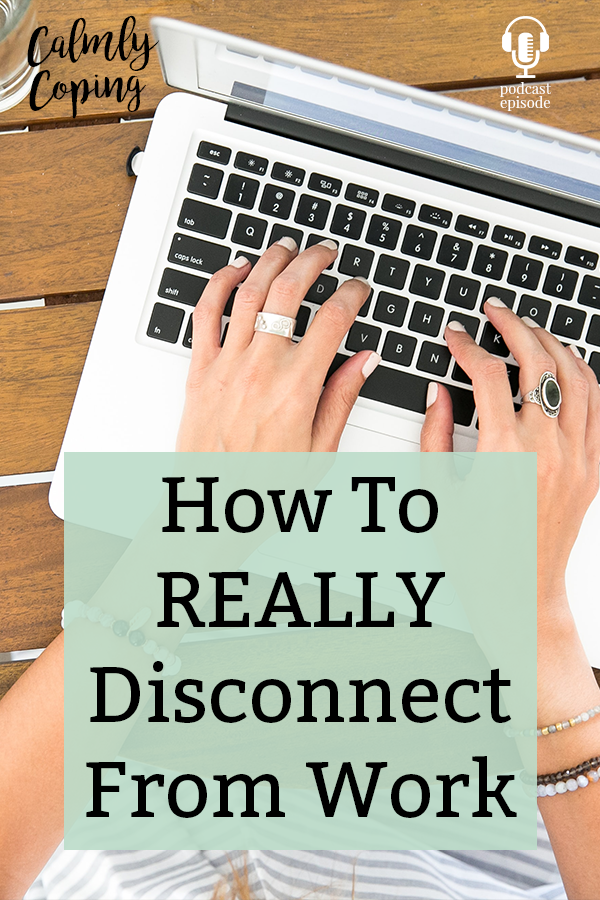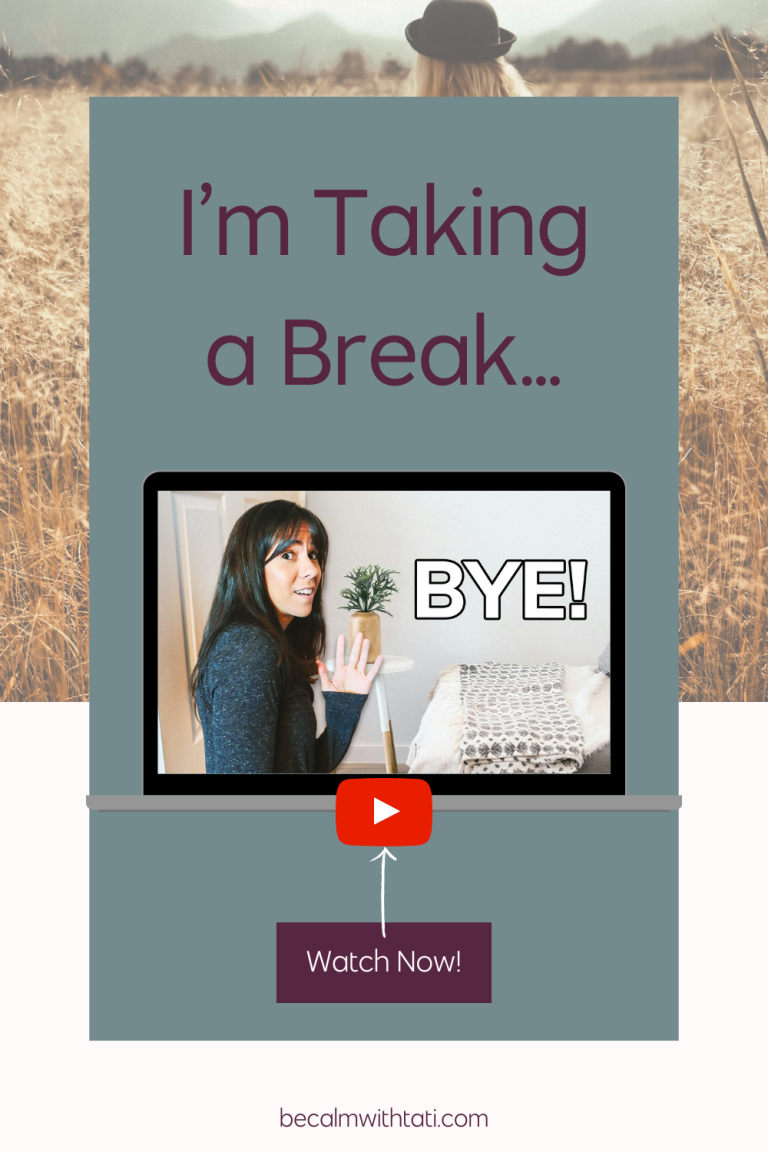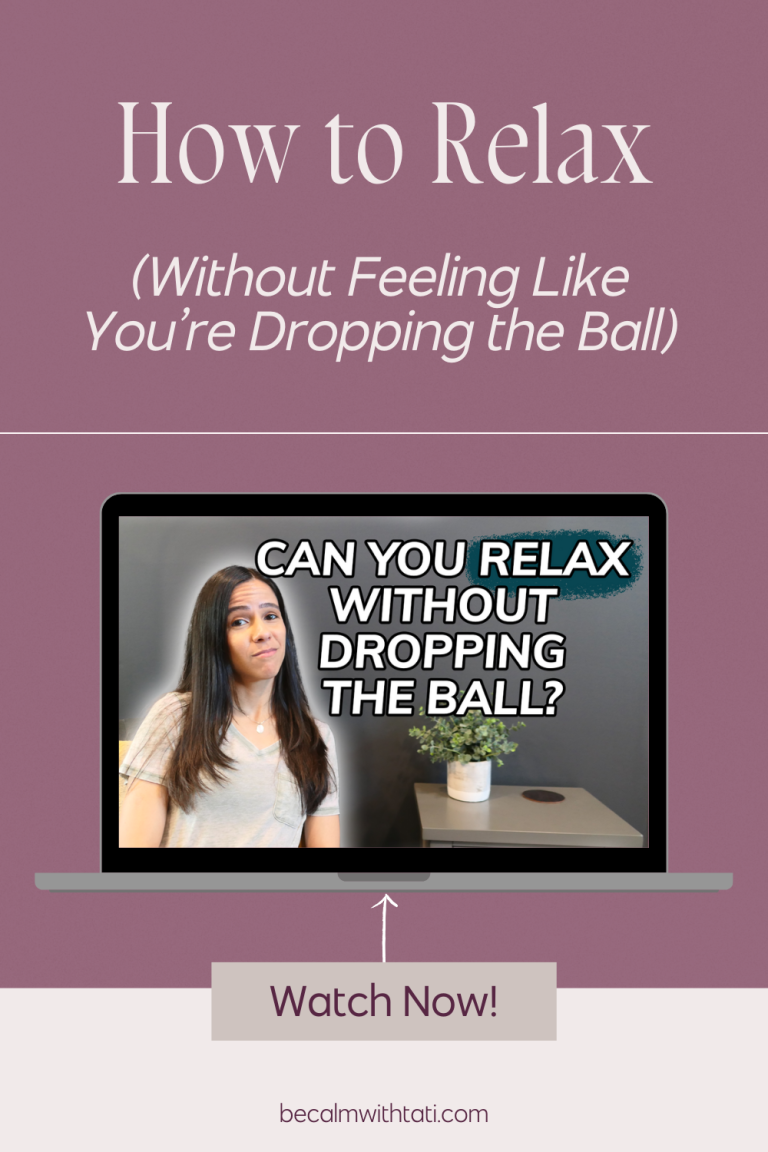Listen Now:
How To REALLY Disconnect From Work
Do you struggle with fully disconnecting from work?
Is it hard to turn off your mind and let go of the thoughts, stress, and pressure that come from your responsibilities?
You’re not alone- it can be very difficult to disconnect from work, especially if you struggle with high-functioning anxiety.
That’s because you have the tendency to overthink things, put a lot of pressure on yourself, and worry about things going wrong. You may fear that if you take a break or disconnect that something bad will happen or you will be behind and found out as “not doing well enough.”
But the reality is- these are just fears!
Your behavior is being driven by fear… you keep working and have difficulty turning your mind off because of FEAR.
Fear of not being in control, which can come from a fear of uncertainty or the unknown.
Fear of judgment by others.
Fear of unworthiness/not being good enough.
Fear of failure or mistakes.
Fear of missing out.
The more you let FEAR control your actions, the bigger those FEARS become in your mind.
The only way to challenge these fears is through action. Taking action to prove that your world won’t fall apart if you decide to disconnect and take a break.
Today I will be talking about how to do exactly that. How to disconnect from work so you can face your fears of not doing enough AND finally start taking care of your mental wellness in the way that you so desperately need to!
1. Tie up loose ends
Tie up any loose ends/projects/tasks/etc. before leaving the office or finishing work for the day.
If there is something that will be nagging you to finish- respond to an email you keep putting off, scheduling an important meeting for the following week, etc… JUST DO IT! It probably won’t take very long and will help you feel relieved and give you peace of mind to shut down from work.
2. Plan ahead!
Plan the next day or week ahead of time. This is a big tip I share with my coaching clients: when you plan ahead it helps to decrease the anxiety and overthinking that comes from the “what if’s” or “when will I get this done” or “will I have enough time to complete this?”
Taking just 10-20 minutes at the end of your workday and/or week by scheduling time for the tasks you need to accomplish can give you CERTAINTY in your schedule and help you feel less OVERWHELMED.
I know it can be tedious, but the feeling of relief and clarity you get from planning is so totally worth it!!
3. Set boundaries
Set a HARD boundary. Having boundaries and structure is SO important, especially when you have high-functioning anxiety. And it is especially more important now that many people are working from home.
It’s common to have difficulty transitioning from working in an office to working from home, and it’s something a lot of my clients have told me. They find that it’s harder to focus and get work done at home vs. in the office.
Psychologically, this makes sense. Our minds are sensitive to the environment that we are in, and when you are used to relaxing at home and working at the office… blurring those boundaries can make things difficult and confusing.
IT’S TOTALLY NORMAL.
So that’s when it becomes imperative for YOU to set boundaries. Set a hard start and end time for work… DON’T check email at 10PM (unless you REALLY have to). I understand every person’s situation is different, and setting these boundaries may be more difficult if you have children and/or are the primary caregiver for somebody else.
Set whatever boundaries you can… the most important thing is to create dedicated space for relaxation where work does NOT enter. This can be a physical space (e.g., the living room) or this can be time (e.g., Sundays, evenings after 8PM, etc…).
Setting boundaries between work and relaxation are FREEING because they help release the pressure of needing to be busy all the time. Give yourself permission to relax and let go—- you will be more productive and happier for having done so.
4. Let go!
Let go! Once you have finished up outstanding tasks and scheduled things in your calendar, practice letting go mentally. This can be one of the HARDEST parts.
Remind yourself that you will address things when you have planned to do so… and that thinking about them when you AREN’T working is not productive and does NOT help you get things done any more quickly or any more effectively.
Worrying and overthinking is something the mind does to FEEL some sense of control by trying to mentally problem-solve or prepare for things. The reality is that worrying and overthinking DO ABSOLUTELY NOTHING to help you feel less stressed and more prepared- they do the exact opposite!!!
So catch yourself in moments of overthinking and tell yourself: I will return to this thought/project/task/etc. when I am at my desk and am able to act upon it. Thinking about this now is NOT helping me.
Take Action!
Your action tip is to practice AT LEAST one of these 4 tips in the coming week and practice letting go! I highly suggest taking it even further and taking multiple days off of work WITHOUT checking emails, opening your laptop, or doing anything that could be considered “work.”
Let me know your thoughts about disconnecting from work in the comments below!
Calmly Coping is a self-improvement podcast for overthinkers who struggle with high-functioning anxiety. Calmly Coping is not about fixing you, it’s about uncovering the amazing person that is already there (and that you are just too afraid to let out).
Episode Links:
➔ Download my FREE guide: How To Be More Productive Without Burning Out
➔ Shia LaBeouf “Just Do It” Motivational Speech
Intro/Outro Music:
Rescue Me (Instrumental) by Aussens@iter (c) copyright 2018 Licensed under a Creative Commons Attribution (3.0) license. http://dig.ccmixter.org/files/tobias_weber/57990 Ft: Copperhead
Want To Connect?
Join my free supportive community for high achievers with high-functioning anxiety.
Interested in working with me?















